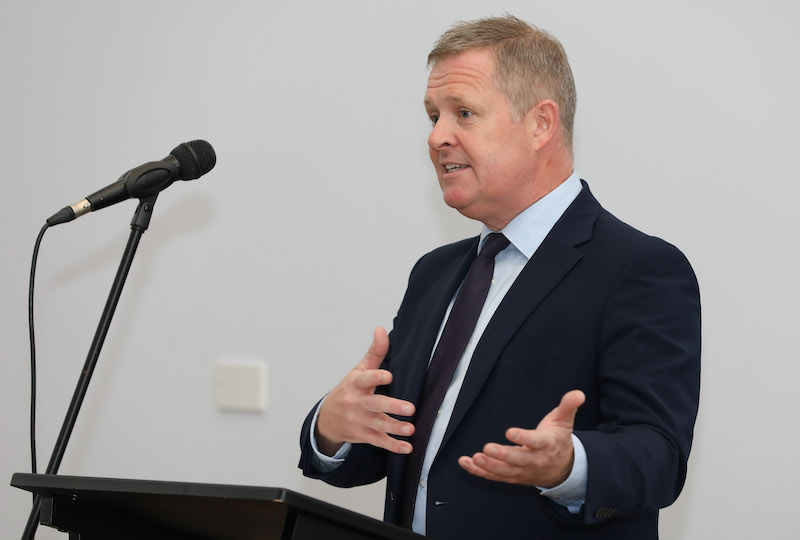Wales Education Minister Aims for Parity Between Vocational and Academic Routes

Wales’ education minister vowed to ensure parity of esteem between vocational and academic routes as he responded to an independent review.
Jeremy Miles recently gave a statement to the Senedd on Welsh Government plans to reform vocational education and expand the number of made-for-Wales qualifications.
Mr Miles said collaboration is at the heart of the findings of the review – which was led by Sharron Lusher, a former principal of Pembrokeshire College.
The education minister said qualifications will be reviewed to ensure they are fit for purpose, available bilingually, and meet the needs of learners, employers and providers.
The 120-page report, which made 33 recommendations, explored the pros and cons of establishing a national awarding body for vocational qualifications.
But Mr Miles told the chamber: “While I can see the appeal of such a body … when budgets across the board are under such immense pressure, I accept it cannot be the priority.”
The would-be first minister accepted the review’s call for a national strategy for vocational qualifications that is aligned with employers’ skills needs.
Mr Miles also backed a recommendation that Wales does not follow the same approach as England, which introduced T-levels – a technical-based alternative to A-levels – in 2020.
He said all level-three learners will have the opportunity to access work experience, adding that statutory guidance for schools on 14-16 learning will be published.
‘Cloak and dagger’
Janet Finch-Saunders, for the Conservatives, warned that Wales is falling behind the other UK nations as she criticised the Welsh Government’s “cloak-and-dagger” approach.
She raised concerns about Qualifications Wales’ plans for skill-based VCSEs, which were announced last week, cautioning that schools have neither the capacity nor the funding.
The Aberconwy MS said: “I have serious reservations around the workload for teachers, who will now have to familiarise themselves with new qualifications, and any additional costs on already stretched school budgets.”
Mr Miles disputed the “cloak-and-dagger” depiction, pointing out that the report was published in September and he was in the chamber answering MSs’ questions.
The education minister welcomed the VCSEs announcement as an important step towards a more coherent, streamlined and focused offer.
‘Free market’
Heledd Fychan, Plaid Cymru’s shadow minister, warned that vocational education and training must not be considered in a silo as she called for a comprehensive approach.
She pointed out that Scotland and Northern Ireland have state-led examination boards, warning that an open-market approach goes against the grain.
The South Wales Central MS told the chamber: “We have a strange situation here, where individual choice and the free market take the lead.
“But we accept the pragmatism that underpins the way forward, and we understand that there is no desire in the sector at the moment, and that there are financial challenges in terms of creating a new awarding body specific to Wales.”
Ms Fychan raised concerns about a near-25% cut to the apprenticeship budget, with Mr Miles responding that ministers will seek to restore funding as soon as possible.
‘Challenging’
Vikki Howells, the Labour MS for Cynon Valley, welcomed the focus on achieving parity of esteem between vocational and academic qualifications.
Ms Howells, a former assistant head of sixth form, said vocational assessments must take full account of students’ practical skills rather than rely too much on written assessments.
She warned that securing work placements can be extremely challenging, with opportunities in short supply and some students at risk of having to leave their courses as a result.
Mr Miles said ministers are seeking to address this through more than £6m in innovation funding, which is being used to try out new ways of delivering work placements.
Hefin David, who represents Caerphilly, raised his report on transitions to employment, stressing that collaboration between secondary schools and post-16 institutions is vital.
The Labour MS pointed to the NPTC Group of Colleges and Llanidloes High School as an example of collaborative practice, suggesting a pilot project to spread the approach.
Closing the statement on February 6, Mr Miles said a key challenge is removing obstacles in the design of the system that make it harder for schools and colleges to work together.
By Chris Haines, ICNN Senedd reporter
Spotted something? Got a story? Email [email protected]











